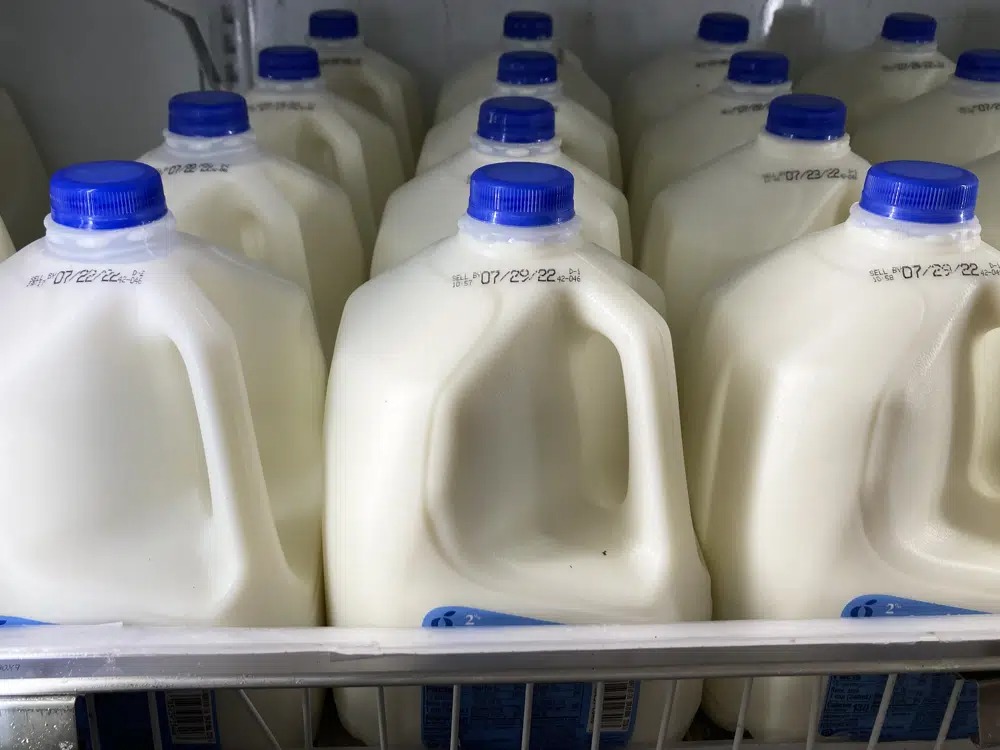Soy, oat, almond and other drinks that bill themselves as “milk” can keep using the name, according to draft federal rules released Wednesday.
Food and Drug Administration officials issued guidance that says plant-based beverages don’t pretend to be from dairy animals – and that U.S. consumers aren’t confused by the difference.
Dairy producers for years have called for the FDA to crack down on plant-based drinks and other products that they say masquerade as animal-based foods and cloud the real meaning of “milk.”
Under the draft rules, the agency recommends that beverage makers label their products clearly by the plant source of the food, such as “soy milk” or “cashew milk.”
The rules also call for voluntary extra nutrition labels that note when the drinks have lower levels of nutrients than dairy milk, such as calcium, magnesium or vitamin D. They would continue to allow labels that note when plant-based drinks have higher levels. Fortified soy milk is the only plant-based food included in the dairy category of U.S. dietary guidelines because of its nutrient levels.
The new guidelines are aimed at providing consumers clear nutrition information, FDA Commissioner Dr. Robert Califf said in a statement. The draft rules do not apply to nondairy products other than beverages, such as yogurt.
The National Milk Producers Federation, an industry trade group, applauded the call for extra nutrition information on drink labels, but said they rejected the FDA’s conclusion that plant-based drinks can be called milk because it’s a “common and usual name.”
The Good Food Institute, a group that advocates for plant-based products, objected to the extra labeling in a statement, saying “the guidance misguidedly admonishes companies to make a direct comparison” with cow’s milk, even though key nutrients are already required to be listed.
In recent years, the number of plant-based drinks has exploded to include dozens of varieties, including cashew, coconut, hemp and quinoa-based beverages. Although the drinks are made from the liquid extracts of plant materials, they are frequently labeled – and described – as “milks.”
In the U.S., almond milk is the most popular variety, but oat milk has been seeing the fastest growth. Still, nondairy sales are dwarfed by traditional milk. Sales of refrigerated cow’s milk grew to $12.3 billion in the 52 weeks ending Jan. 28, compared to $2.5 billion for nondairy milk, according to NielsenIQ.
In the past, lawmakers in dairy states have tried to get bills passed that would require the FDA to enforce a federal standard that defines “milk” as the product of “milking one or more healthy cows.”
The agency will accept comments on the draft guidelines through April 23.
(AP)












2 Responses
This dispute has been going on for centuries if not millennia, and we have been heavily involved since having parve milk has always been important to us. A strong argument can be made the many if not most Americans use the word “milk” to include more than milk from cows. If there was such a thing as an “Academy of the English Language” they could enact a law defining “milk”, but since there is no such thing, we should be content in the government trying to have a definition that reflect common usage.
Having government defining what can be named what is a waste of time and money (money used for enforcement and employees).
Companies have strong incentives to self regulate in order to avoid lawsuits and bad PR, both of which are bad for business.
A lot of these useless regulations have unintended consequences. Take the recent sesame label requirements as an example